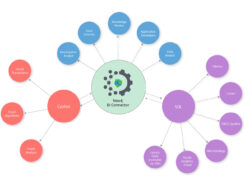Procrastination is not exclusively seen in new-found workers-from-home. Contrary to popular belief, gig workers procrastinate, too.
How come?
The first misconception about gig workers is that they have sorted their daily schedules out and, hence, have no difficulties going about their day in the most efficient way possible. Wrong!
Gig workers are people, too, and people are not immune to spacing out no matter their vocation or work setting. You’ve guessed it – the reason is rooted in psychology.
Psychology of Procrastination
Perhaps the best explanation of the complex process of procrastination comes from Wait but Why founder Tim Urban, which is certain to make you laugh if you decide to give it a go. He will tell you all about the inner monster that alerts him of the tasks long overdue. What he will not do, however, tell you is why we tend to procrastinate.
The most obvious conclusion that procrastination and lack of will power are closely linked turns out to be incomplete and far too simplified, according to psychologists. The knotty mechanism of procrastination is directly linked to our fears and anxieties. It does sound like something psychologists would say, come to think of it. Stress seems to be a suitable excuse for all ailments – physical or mental – that we don’t know much about.
Still, in the case of procrastination, the explanation seems logical. If you think about it rationally, you will easily see that it is often invoked when things don’t go the way we want them to. In plain language, when our goals are not clearly defined, we tend to procrastinate.
Further out, if you ever listened to Zimbardo’s excellent talks, by now you already know that people have difficulties connecting to their future self, a phenomenon called temporal self-discontinuity, or temporal disjunction.
What has that to do with procrastination?
For one thing, when work is concerned, we normally perform tasks for which we will be rewarded in the future. The inability to directly link the present task with the future reward is, you will agree, a massive trigger for procrastination. How many times have we told ourselves “I’ll do it tomorrow” and then proceeded to waste time on some meaningless task (browsing social media newsfeed, anyone?).
These reasons are but the tip of an iceberg, but they’re sufficient to drive the message home. The key to beating procrastination is in telling ourselves that what can be done now should be done immediately, instead of the next day… which brings us to our first tip.
Defining Priorities
Defining priorities is a useful skill in all aspects of life. Observed only in the context of work, it is way easier than in other matters.
Some tasks are time-sensitive, and some aren’t. It’s that simple. The easiest way to keep track of the important tasks and those that can be done later is by keeping a schedule of daily tasks.
Next on, make the tasks meaningful. If you do things mechanically without enjoying them, it’s only natural that you won’t be motivated. This may be even worse than procrastination, because you will be simply doing the task instead of brainstorming it, which will give you no satisfaction and will make you even less motivated.
Don’t Overdo It
Still, that doesn’t mean that you should think of (and do) job-related things all day long. Quite the contrary, or else you will come quite close to being on a first-hand basis with the Japanese term karōshi, which loosely translates as “death by overwork.”
Speaking of the Japanese, they also face another issue. Because they are used to working too much, when they have some extra time, they usually don’t know how to spend it.
The other side of the coin is even bleaker. In the wake of the current pandemic, we have learned many new things about ourselves. What is most striking is that people from all around the globe, regardless of their cultural differences and lifestyles, seem to have one thing in common: when they finally have some extra hours every day, they tend to spend it on procrastination.
Darius Foroux, a personal development enthusiast, nicely put this dilemma: “Why do we work 8–9 hours a day so that we can earn free time, while we endlessly waste that hard-earned free time?”
It’s high time to shift our perception of what enjoyment is. Simply having free time doesn’t cut it. Spending quality free time does.
What to Do With Leisure Time
There are activities and activities to be enjoyed. You knew this before you found yourself at the disposal of “all the time in the world.” Why waste it on binge-watching Netflix, when the service is not going anywhere? Or wrack your brain about the taxes when your salary has so far provided an answer, or when there are special guidelines that take care of it?
Oh, to be a human! Why can’t we simply relax and enjoy ourselves to the fullest? Why not work out or enjoy that book we now have enough time to properly enjoy?
No reason at all. Drafting a schedule in the same way as you do for your job may help with establishing a healthy routine where every activity will get a chance to enlighten you. Try with composing a daily schedule that includes ALL daily activities: getting up, taking a shower, having breakfast, brainstorming job-related tasks, enjoying lunch, working out, reading a book, “hanging out” online, etc. If you put everything on paper, you will have a time slot for everything and will be able to track the actual amount of time spent on each activity.
Mix the ingredients in accordance with results. I.e., if half an hour is not enough for exercise, add 15 minutes. Do this for every activity, but make certain to leave an extra hour for procrastination. Why?
It’s a psychology thing. Once you have learned what a meaningful, fulfilling day truly is, you will realize that you don’t enjoy wasting time reading Facebook posts you are not interested in. You’re doing it to kill some time, the asset you are constantly lacking.
What Next?
The road to beating procrastination for good lies in leading a meaningful life. A life that you enjoy. A life that makes sense. Working all day long with breaks spent on procrastination (with the classic excuse “I need to unwind”) beats the purpose of your job and salary. Look at it this way: you are selling your time in exchange for a salary that you will use on things you enjoy. Can it get any more simplified than that?

















































































